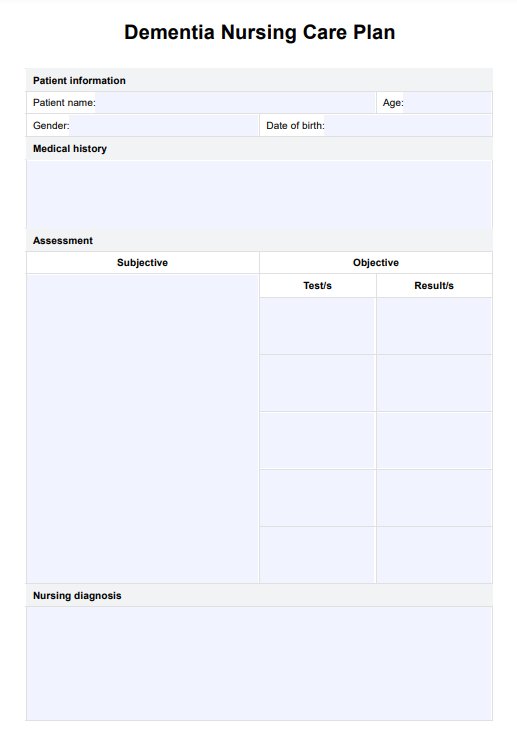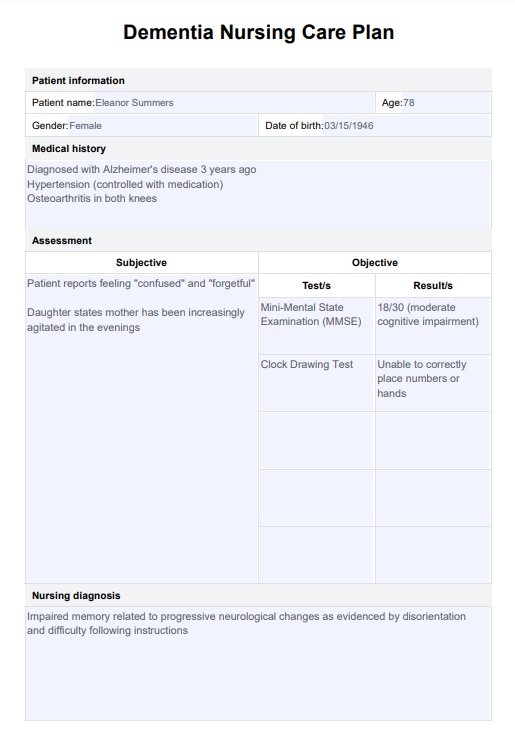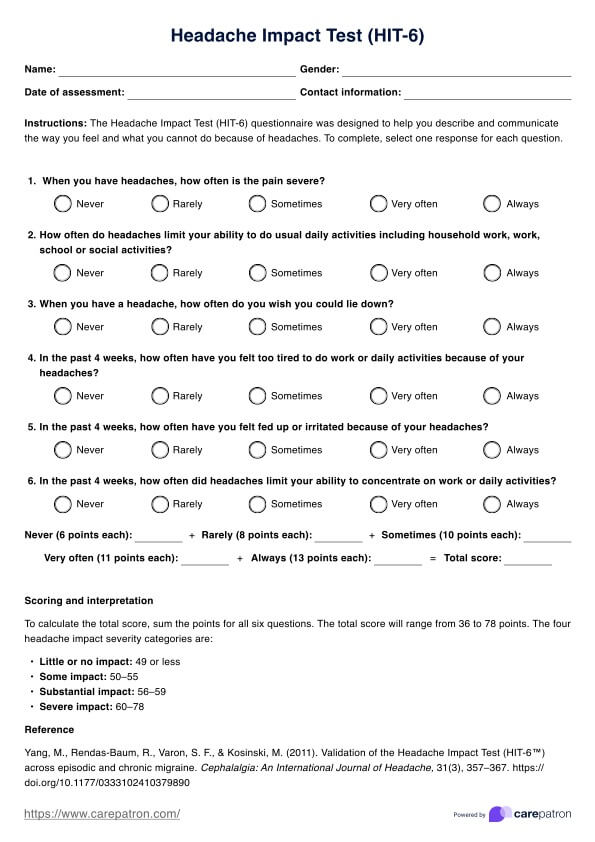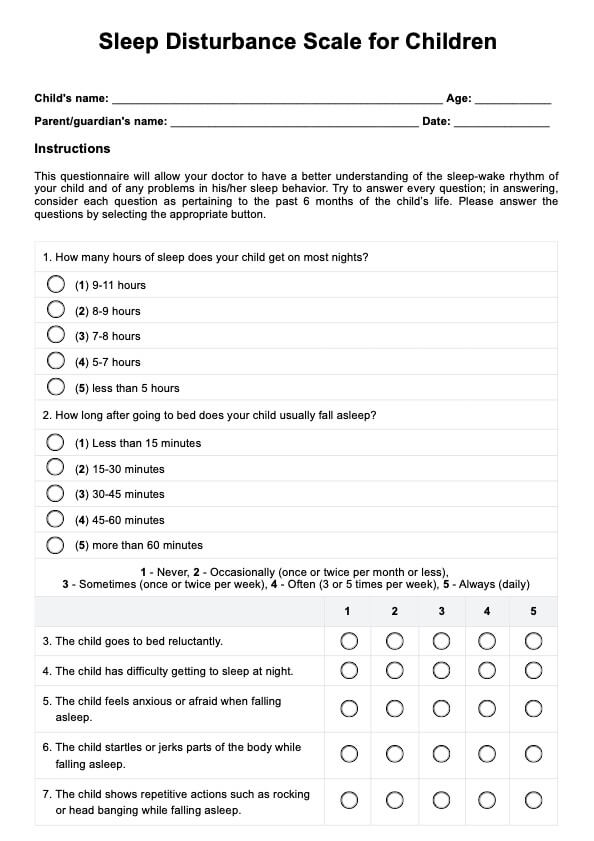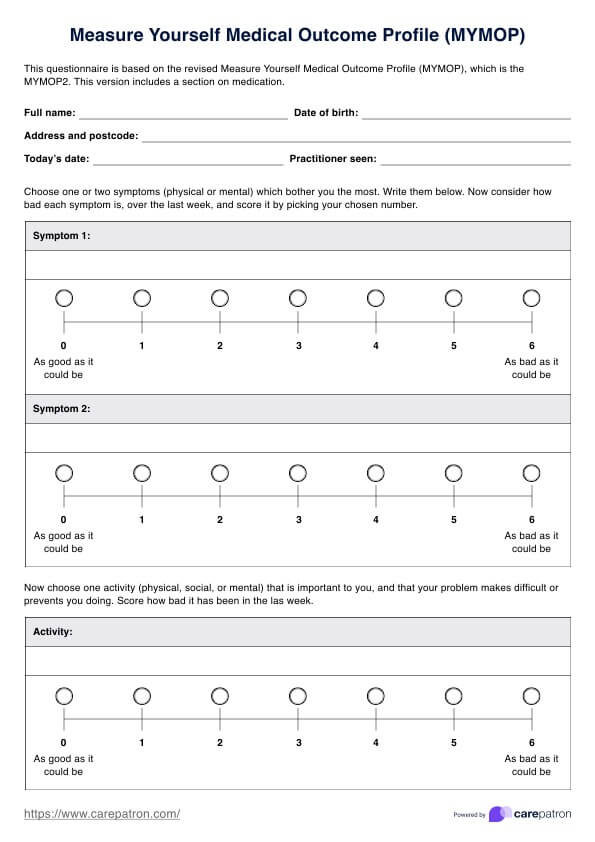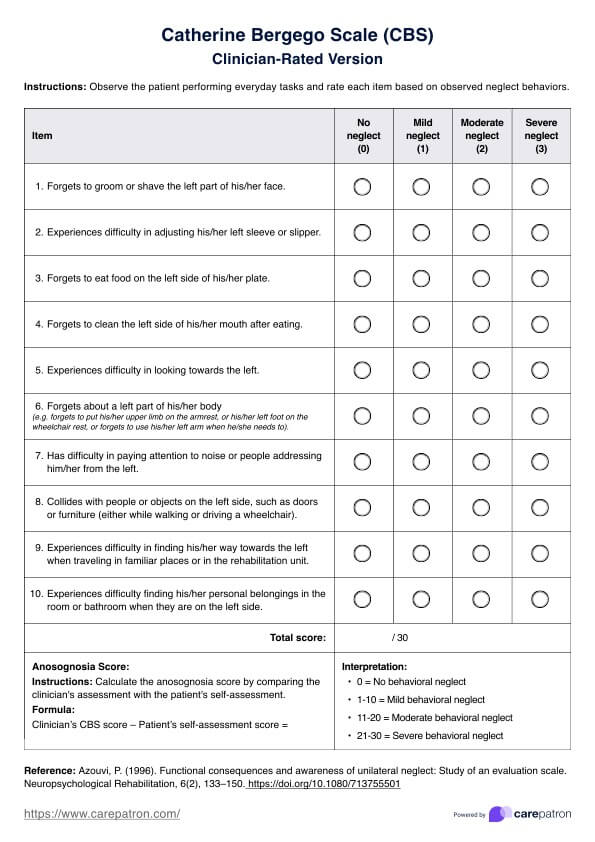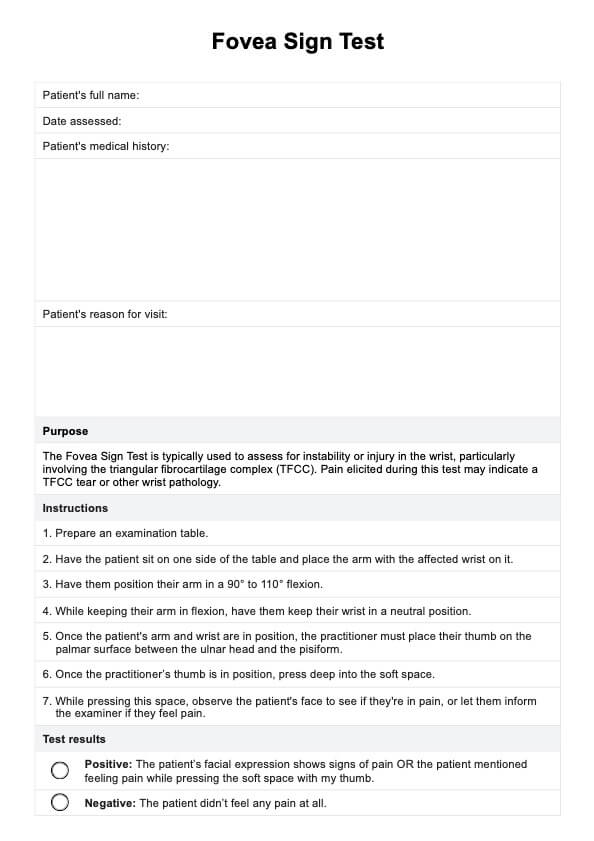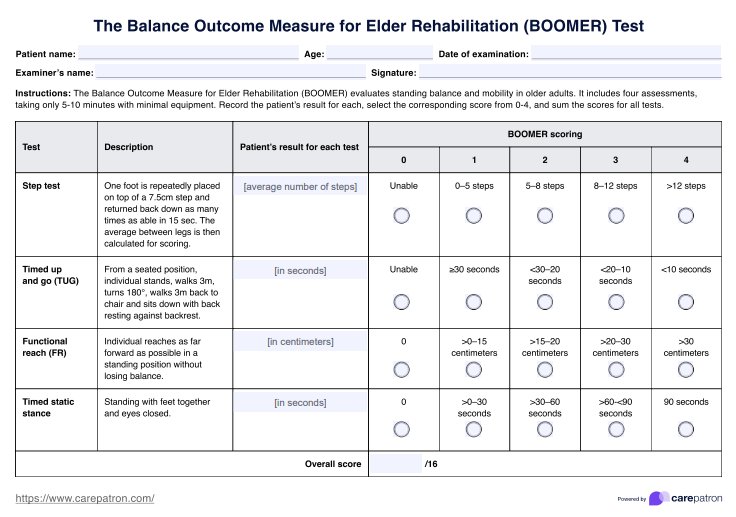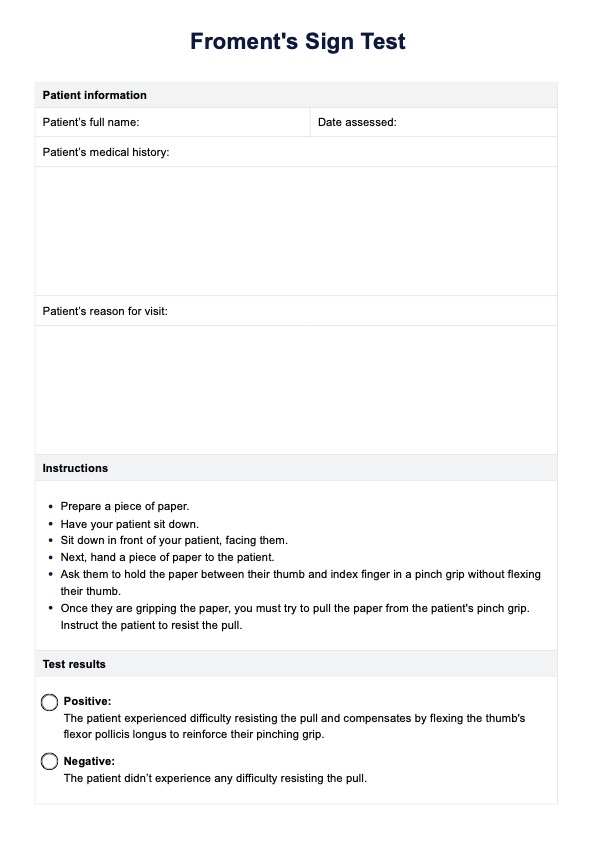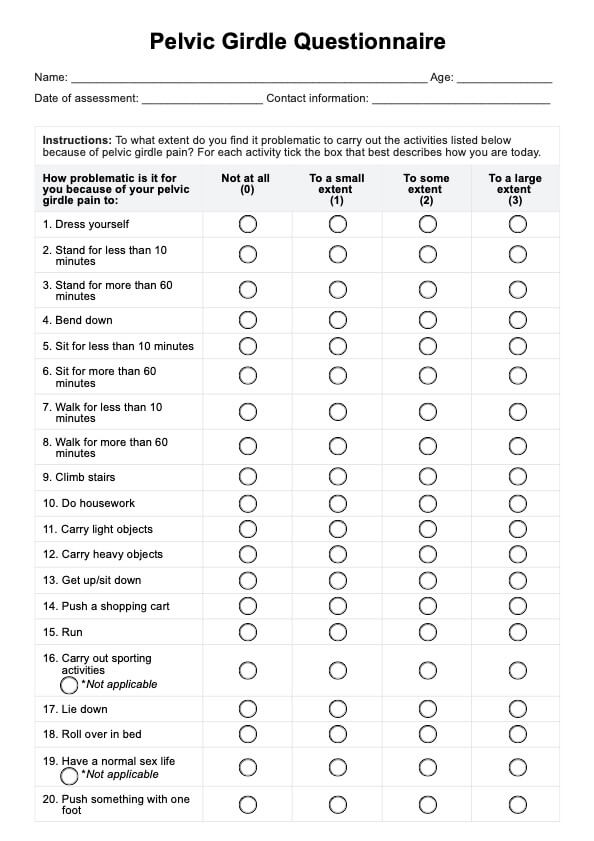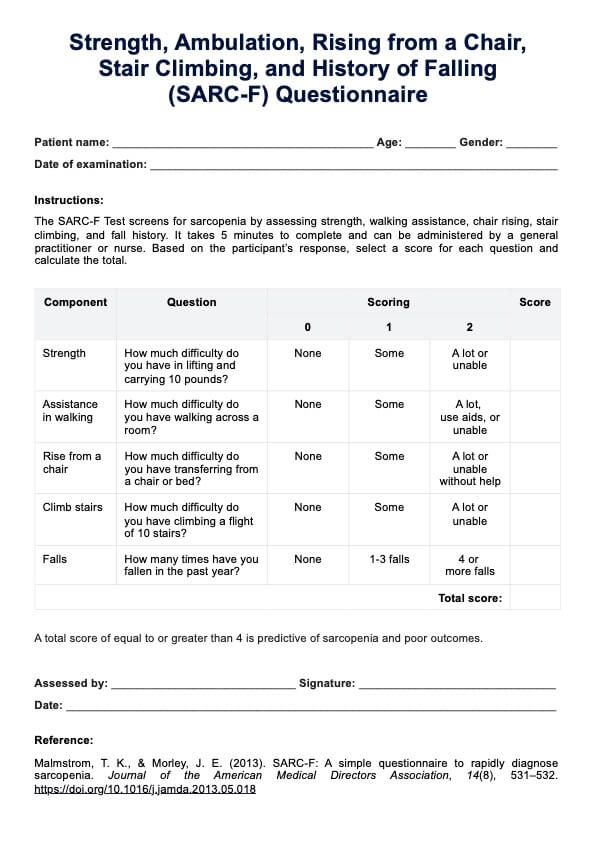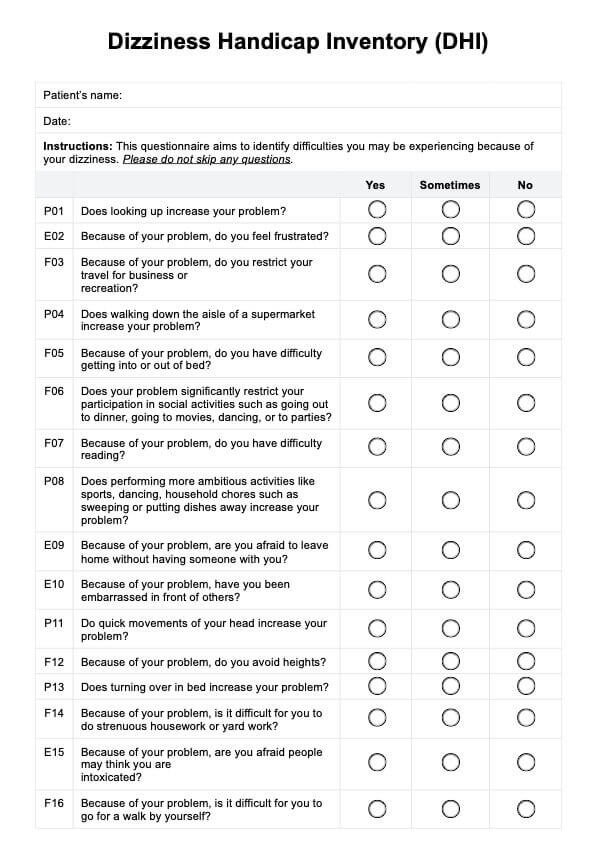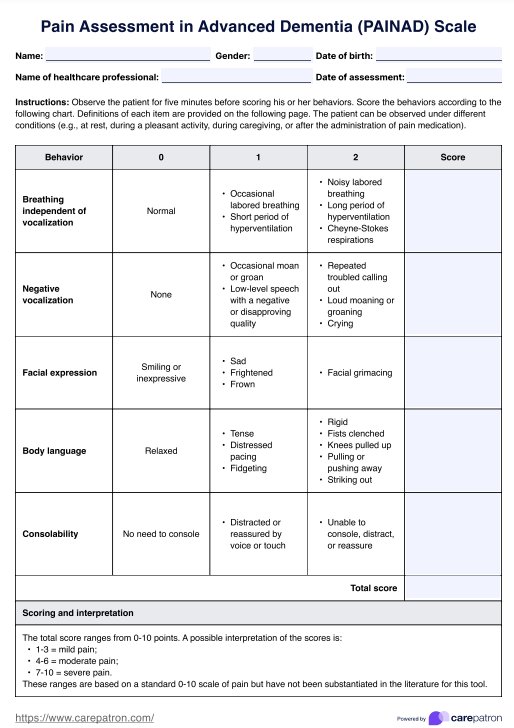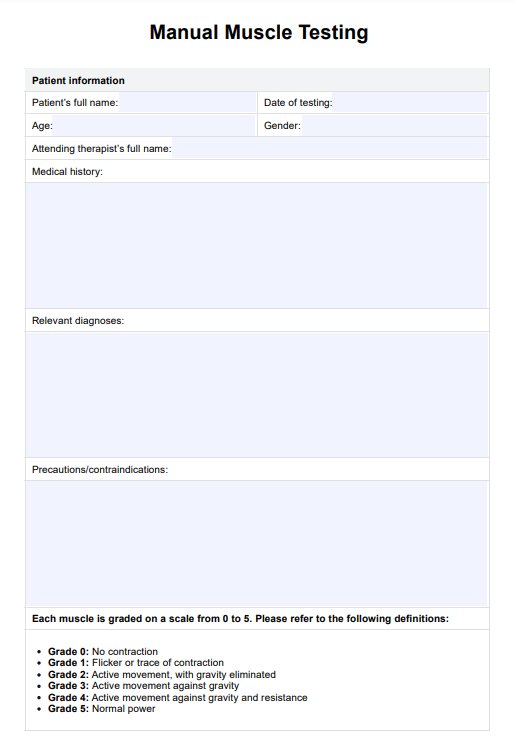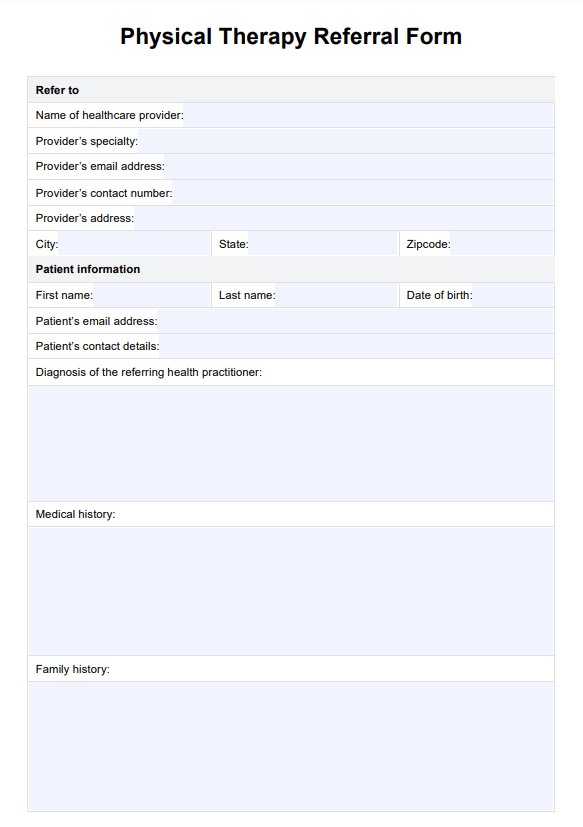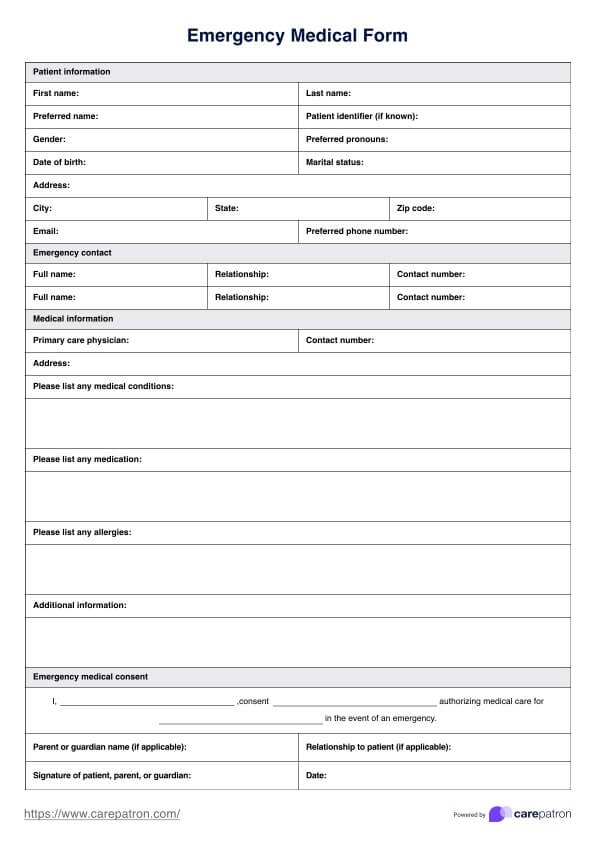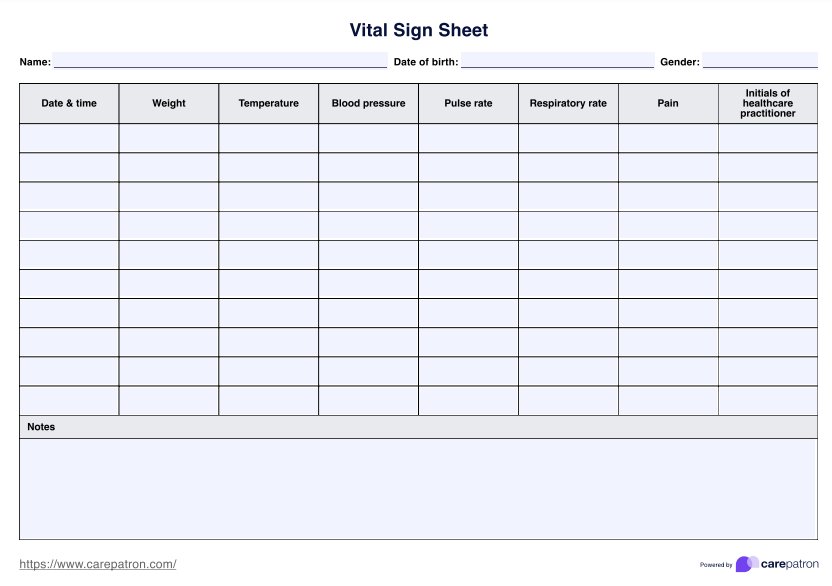Dementia Nursing Care Plan
Explore our Dementia Nursing Care Plan Template with practical examples. Download the free PDF to enhance patient care in dementia nursing.


What is a Dementia Nursing Care Plan Template?
Dementia, a collective term for progressive neurodegenerative disorders, affect cognitive functioning, memory, and behavior. The progression of cognitive decline gradually erodes an individual's ability to perform everyday tasks, maintain relationships, and live independently. This cognitive impairment not only impacts the individual but also places significant stress on the patient's family and caregivers.
This progressive neurological disorder becomes increasingly challenging for affected individuals to navigate the complexities of daily life, leaving them reliant on caregivers for support and assistance.
Dementia nursing care plans can then serve as a guidance template for nurses, providing a structured framework for developing individualized care plans tailored to each patient's needs. These comprehensive plans outline common nursing diagnoses, establish achievable goals and design effective nursing interventions, all tailored to dementia management principles and according to the patient's needs. Our Dementia Nursing Care Plan Template can then be used for patients with various forms of dementia, including Alzheimer's disease, vascular dementia, and Lewy body dementia.
Dementia Nursing Care Plan Template
Dementia Nursing Care Plan Example
How does this dementia care plan PDF work?
When using a printable Dementia Nursing Care Plan Template, the main steps involved are as follows:
Step 1: Patient assessment
Begin by collecting essential patient information, including name, age, gender, and relevant medical history. Conduct a thorough assessment, documenting both subjective observations (patient's reported symptoms, concerns, and experiences) and objective data (test results, physical examinations, and cognitive assessments). This holistic approach ensures a comprehensive understanding of the patient's condition.
Step 2: Formulate nursing diagnoses and set goals
Based on the assessment data, identify and document an appropriate nursing diagnosis. These should reflect the patient's current health status and potential risks. Next, establish both long-term and short-term goals for the patient. Goals should be specific and measurable, focusing on improving or maintaining cognitive function, ensuring a calm and structured environment, and enhancing quality of life.
Step 3: Develop and implement nursing interventions
Design a set of nursing interventions tailored to address the identified diagnoses and achieve the established goals. Each intervention should be accompanied by a clear rationale, explaining how it will benefit the patient. Interventions may include strategies for managing behavioral symptoms, addressing safety concerns, supporting daily living activities. This can also include educating the patient and family members, and linking patients with community resources and support services.
Step 4: Evaluate and adjust the care plan
Regularly evaluate the effectiveness of the interventions and the patient's progress towards the set goals. Document your observations and any changes in the patient's condition in the evaluation section. Based on this ongoing assessment, adjust the care plan as needed. This may involve modifying interventions, setting new goals, or addressing newly emerged issues. Remember that dementia is a progressive condition, and the care plan should evolve to meet the changing needs of the patient.
When would you use the Dementia Nursing Care Plan Template?
A Dementia Nursing Care Plan Template is a valuable tool for nurses caring for patients with dementia at any stage of the disease. It provides a structured framework for developing individualized care plans addressing each patient's needs and challenges. Here are some particular situations where this template could be helpful:
- Newly diagnosed dementia: A care plan is crucial for establishing a baseline assessment, developing a personalized treatment plan, and monitoring the patient's progress as the disease progresses.
- Ongoing dementia management: As dementia progresses, the patient's needs and challenges may change. A care plan can be regularly updated to reflect these changes and ensure that the patient receives the most appropriate care.
- Enhancing patient and caregiver well-being: A care plan can guide and support caregivers, helping them understand the patient's needs especially practical and emotional support. This can contribute to improved patient outcomes and reduced caregiver stress.
- Promoting communication and collaboration: A care plan allows practitioners to communicate effectively, promoting collaboration among healthcare providers involved in the patient's care, ensuring a coordinated approach to managing the patient's dementia.
Alzheimer's disease care plan
Alzheimer's disease, a progressive neurological disorder, stands as one of the most prevalent forms of dementia globally, profoundly impacting memory, thinking, and behavior. This disease gradually deteriorates brain and nerve cells, leading to a decline in cognitive abilities and functional independence.
Alzheimer's subtly affects memory and cognitive function, often manifesting as forgetfulness or occasional confusion. As it advances, individuals experience a progressive decline in memory recall, reasoning, and problem-solving skills, disrupting daily life activities and impairing judgment. Communication challenges emerge, making it increasingly difficult to articulate thoughts or follow conversations. Changes in mood and personality become apparent, leading to shifts in behavior, agitation, or withdrawal from social interactions.
Throughout all stages, continual assessment and adaptation of the care plan are crucial to meet the evolving needs of the individual with Alzheimer's disease. Our Dementia Nursing Care Plan Template can be customized and used to structure a care plan for Alzheimer's disease and other related disorders.
Commonly asked questions
To write a care plan for a dementia patient, begin by conducting a comprehensive assessment that includes the patient's medical history, cognitive abilities, daily functioning, and personal preferences. Set clear, achievable goals that address both physical and emotional well-being. Outline specific interventions and establish a schedule for regular reviews and updates to the care plan to adapt to the patient's changing needs over time.
Dementia Nursing Care Plan Templates are used whenever a nurse cares for a patient with dementia, particularly for newly diagnosed patients, for ongoing dementia management, and for preventing dementia complications.
Nurses use Dementia Nursing Care Plan Templates as a guide to develop individualized care plans for dementia patients and communicate it with other practitioners and caregivers. This can also include additional guidelines in providing patient and family education, or information on support groups and other resources tailoring them to each patient's needs and circumstances.


